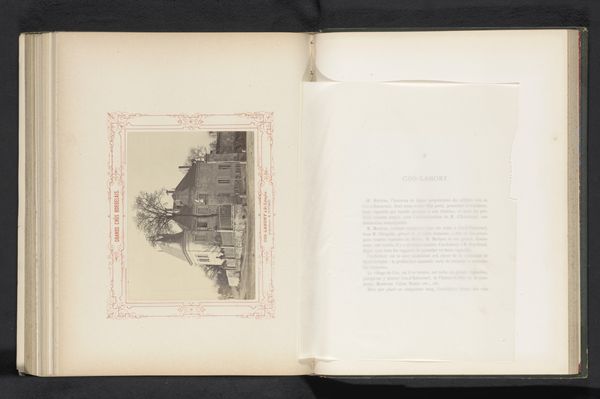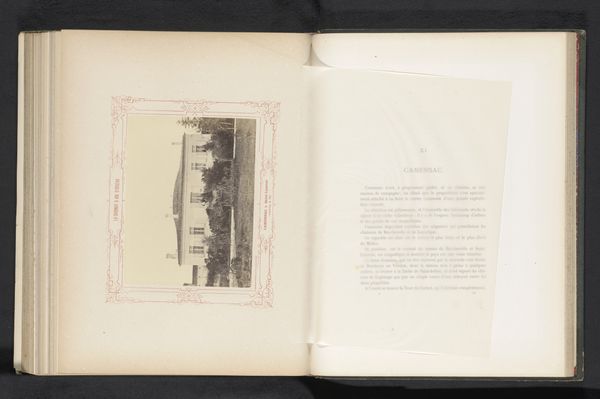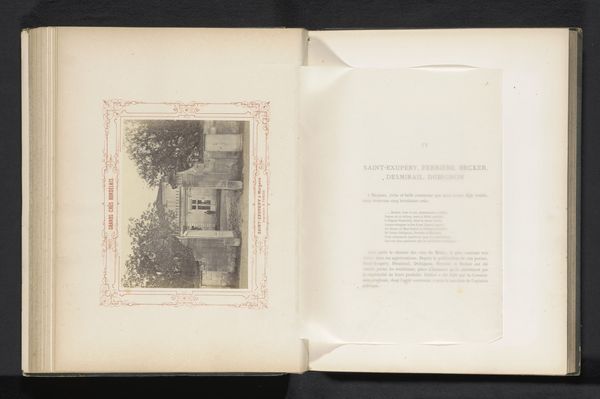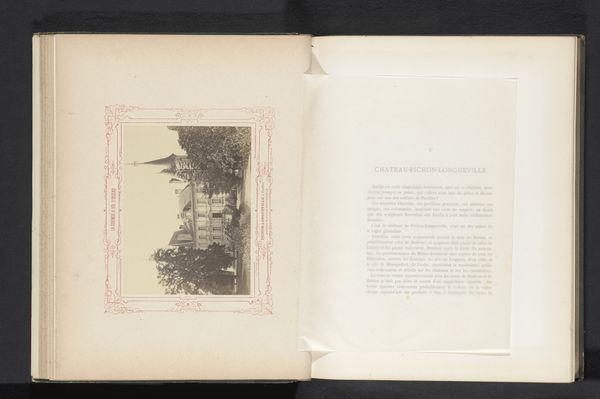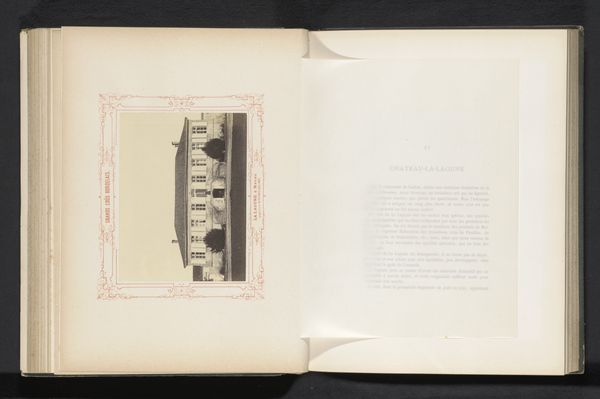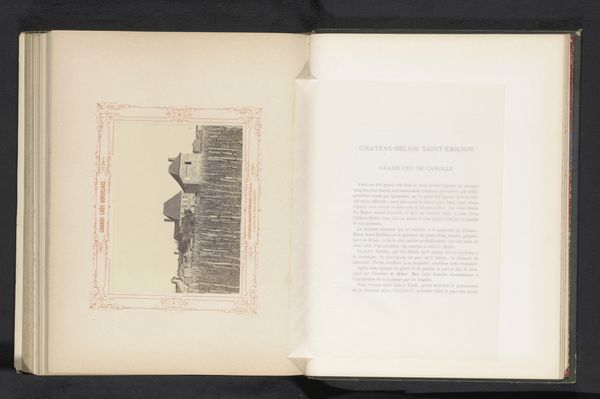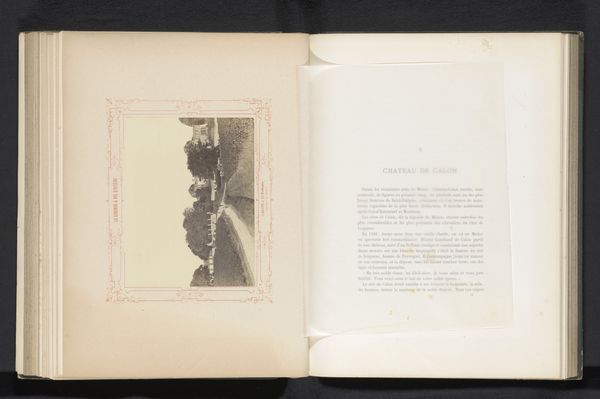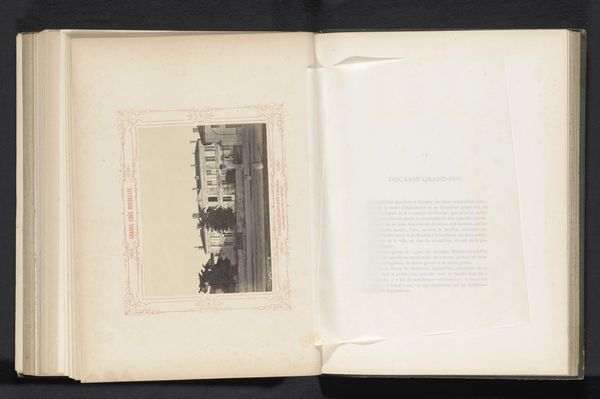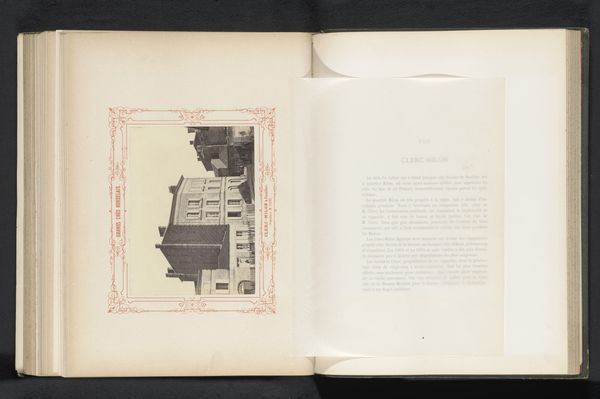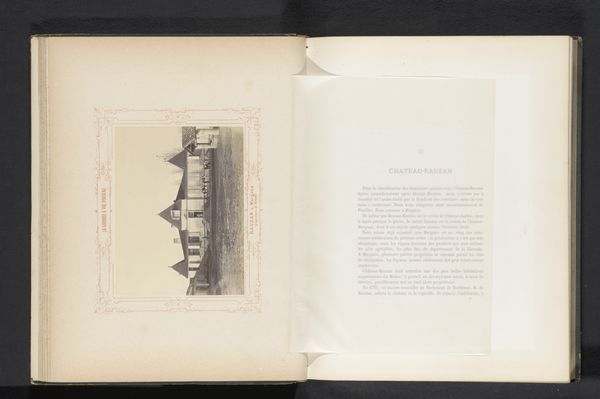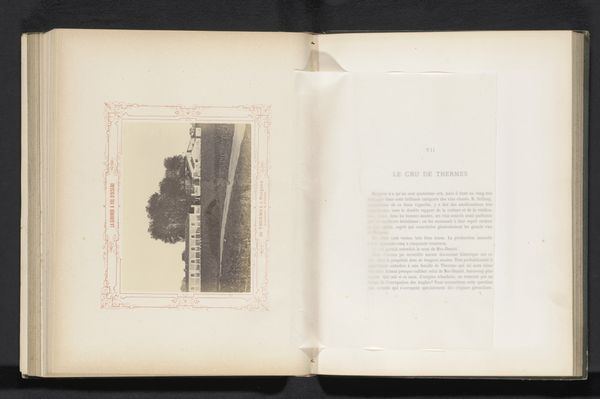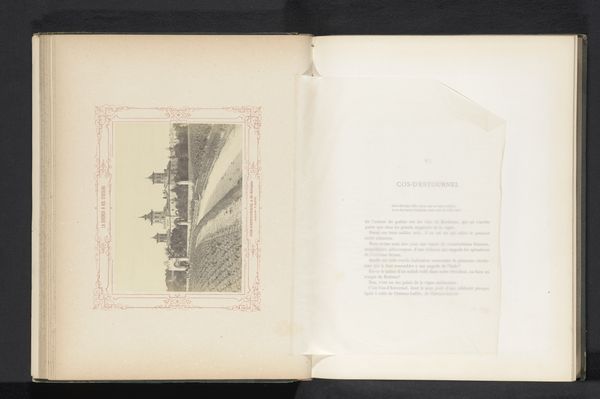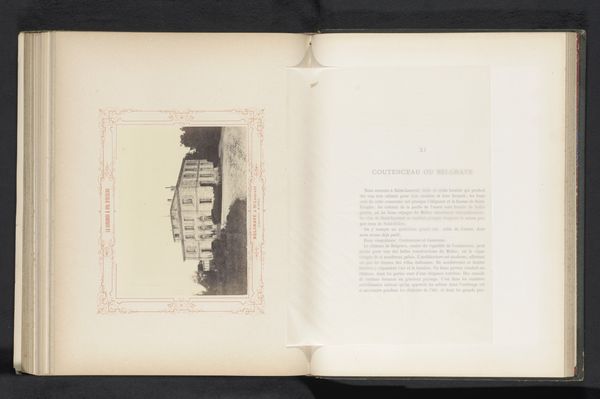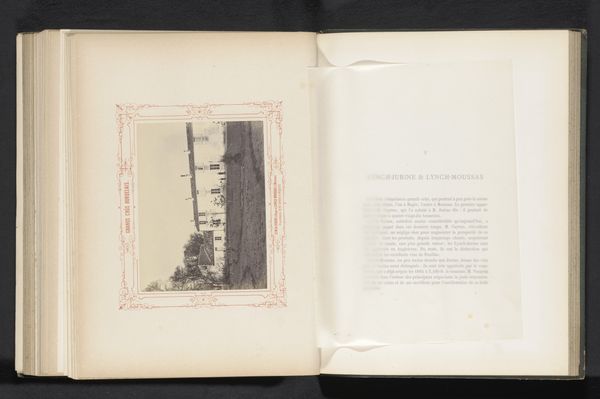
print, photography, albumen-print
#
aged paper
#
homemade paper
#
paper non-digital material
#
paperlike
# print
#
sketch book
#
landscape
#
personal journal design
#
paper texture
#
photography
#
personal sketchbook
#
folded paper
#
cityscape
#
design on paper
#
albumen-print
Dimensions: height 129 mm, width 171 mm
Copyright: Rijks Museum: Open Domain
Curator: Here we have "Gezicht op Château Cantemerle in Macau, Frankrijk," a photograph by Alfred Danflou, likely before 1867, presented as an albumen print within what appears to be a personal album. Editor: Oh, how interesting. Immediately, it has this really lovely sepia tone. The architectural rendering feels both solid and dreamlike, like a faded memory of an afternoon. Curator: Indeed. The choice of the albumen print, prevalent during that era, not only contributes to the aesthetic quality you noted but also speaks volumes about the intersection of art, science, and colonial aspirations. These prints often depicted landscapes and landmarks, reinforcing power structures by documenting and, in essence, possessing territories. Editor: Power through imagery, that rings true, but let’s not overlook the frame within a frame—a photograph neatly contained within a decorative border inside a book! It feels incredibly intimate, like peering into someone's treasured scrapbook. What’s your interpretation? Curator: It provides crucial context, I think. Consider that albums during the mid-19th century were potent signifiers of social status, colonial pursuits, and personal narratives. To see Danflou's photographs displayed thus implies that he wasn't just capturing a physical place but actively crafting his own identity and legacy within a world undergoing rapid change. The chateau becomes less about the specific building and more a stage for colonial and class-based self-fashioning. Editor: So true! The border really drives that point home. Still, I also wonder about the more playful, expressive choices here—perhaps that's the artist's voice cutting through the political undertones, right? What do you make of the juxtaposition of the architectural image alongside the typeset description? They create an odd dyad… Curator: Precisely. That stark contrast emphasizes a chasm separating objective observation from literary articulation, subtly interrogating established approaches toward constructing both history and identity. It allows the viewers to question the veracity inherent in art production—the dialogue between "Grand Crus Bordelais" and the reality within that captured landscape. Editor: What a powerful closing thought. All this insight just looking at an image inside of a book! I might have missed so much looking at this photo in isolation, without considering the social dimensions you brought to the table. Curator: And for me, viewing it from an artistic lens helps temper my interpretation and not only explore political history but the enduring impact and creative choices of that specific artist.
Comments
No comments
Be the first to comment and join the conversation on the ultimate creative platform.
